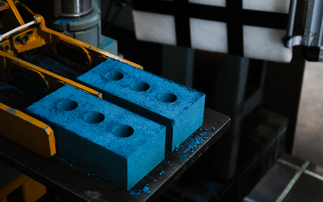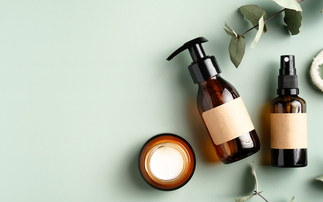The new global initiative from some of the world's biggest brands could finally help make the circular economy a reality at scale
For the past few months BusinessGreen deputy editor Madeleine Cuff has been trying to persuade the rest of the team to take advantage of online cleaning products retailer Splosh. No, this is not a none-too-subtle hint that we could do with a good wash, more an attempt to promote a highly innovative outfit that is attempting to make the circular economy a reality.
Splosh specialises in providing laundry, cleaning, and washing up products, but the twist is that it supplies these essentials using refillable bottles. You get a bottle delivered and then, using the website or the app, order a refill through the post as and when you need one. As a result, plastic waste levels are slashed, along with costs for savvy consumers.
Of course, Splosh is not alone in pursuing this genuinely circular model and yesterday the concept went global with the unveiling in Davos of a massive new initiative from recycling services pioneer Terracycle, which has brought together many of the world's largest consumer goods brands.
Dubbed Loop, the programme is remarkable for both its reach and its ambition. The aim is to deliver a range of products in customised, brand-specific packaging that can then be collected, cleaned, refilled, and reused. Crucially, the list of companies promising to take part in comprehensive pilot projects in the US and France reads like a who's who of consumer goods - Procter & Gamble, Nestle, PepsiCo, Mars Petcare, The Body Shop, Coca-Cola European Partners, and Mondelēz International. Unilever, as you'd expect, is to the fore and an initial trial is set to involve Hellman's, REN Clean Skincare, Love Beauty, Planet, and Seventh Generation.
The big question is will it work? Or more pertinently, will it work at scale?
There is nothing new about packaging re-use. Anyone of a certain age will remember glass milk bottles. Many farmers markets and boutique stores now offer refillable wine bottles or washing up liquid. Splosh, Terracycle, and others are carving out successful businesses by turning the circular economy into a reality. But what is so interesting and important about Loop is the clear attempt to break out of a niche market and take the re-use concept mainstream.
There is no doubt there are plenty of barriers to overcome. One of the reasons the make-use-dispose model has proven so successful and resilient it that it is so damn convenient (if you ignore the environmental consequences). Asking people to refill, reorder, or return packaging introduces an extra step into busy lives. It may be the smallest of chores, but modern family life is so full-on that people can be forgiven for taking the path of least resistance.
The underlying logistics will also need to make use of the latest clean technologies, otherwise the environmental gains from deliverable refills could be quickly undermined by the impact of having yet more delivery vans on the roads.
But imagine if the pilot projects prove successful and global brands move swiftly to deploy Loop and similar services at scale. Through a small change in behaviour and a simple business model innovation you could slash resource use and waste levels, minimise the risk of ocean pollution, and cut carbon emissions. From a business perspective consumer goods firms could also work together to curb logistics and material costs, while enhancing brand loyalty for their products.
Can the loop be closed? We could be about to find out.
This post first appeared as part of BusinessGreen's exclusive daily Overnight Briefing, which is available to all subscribers









